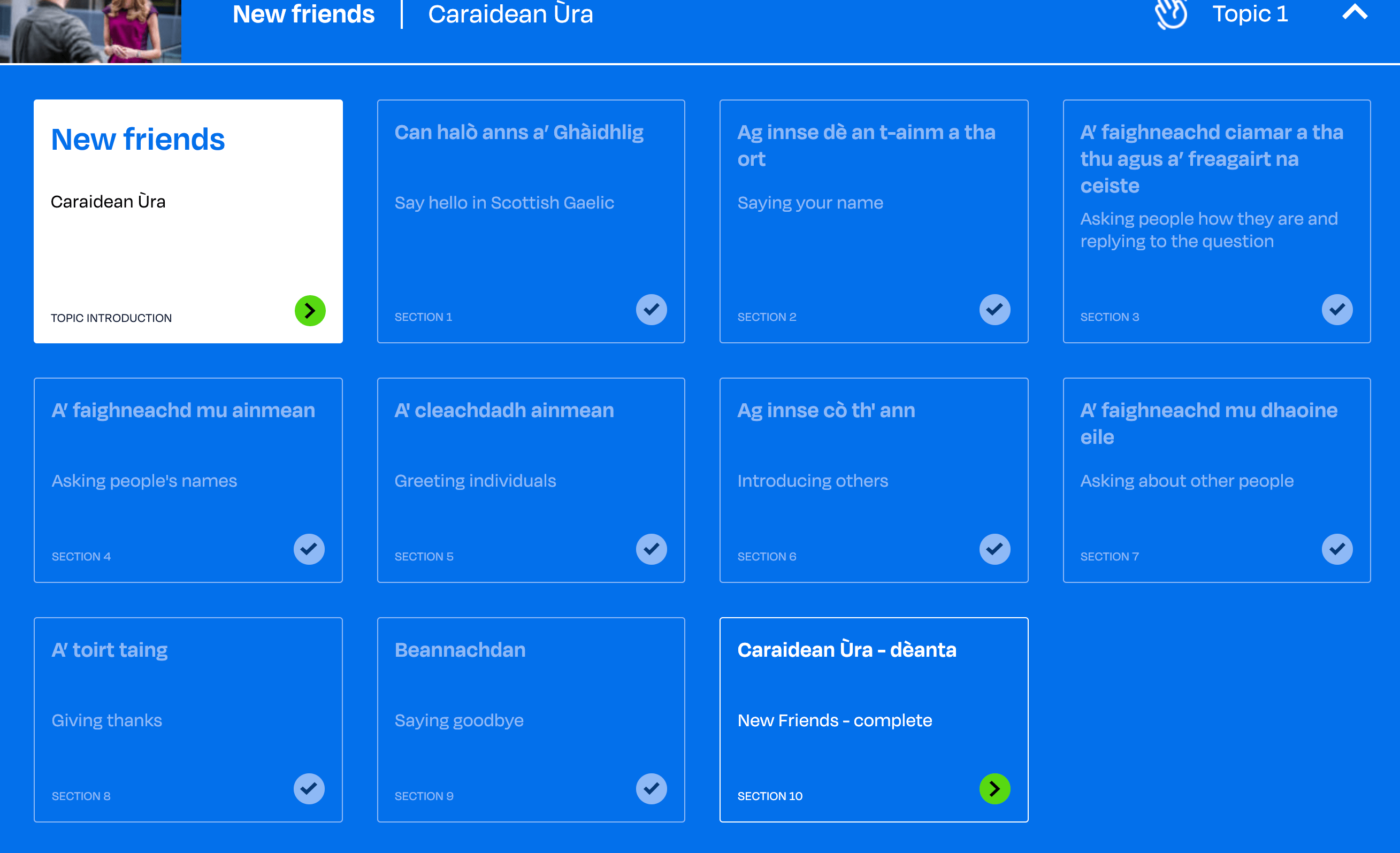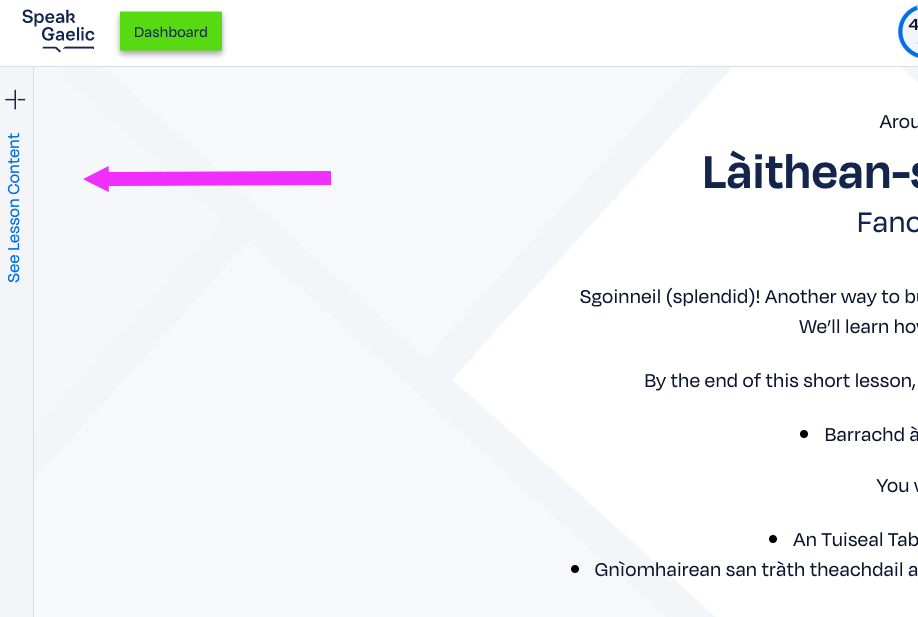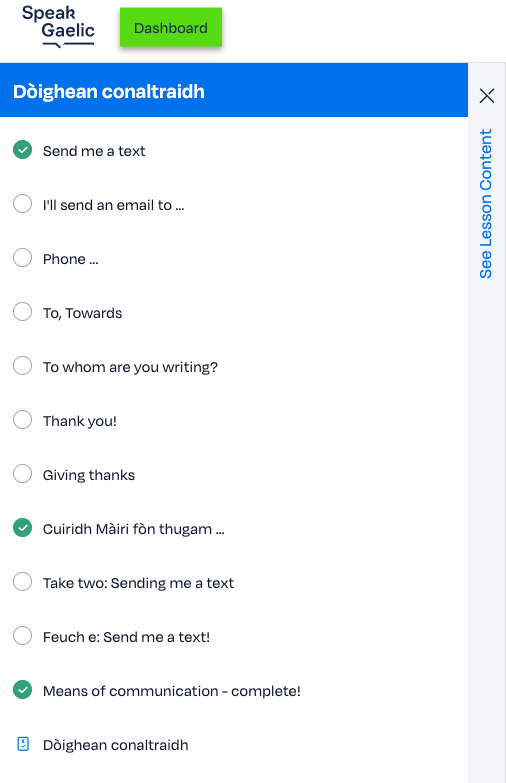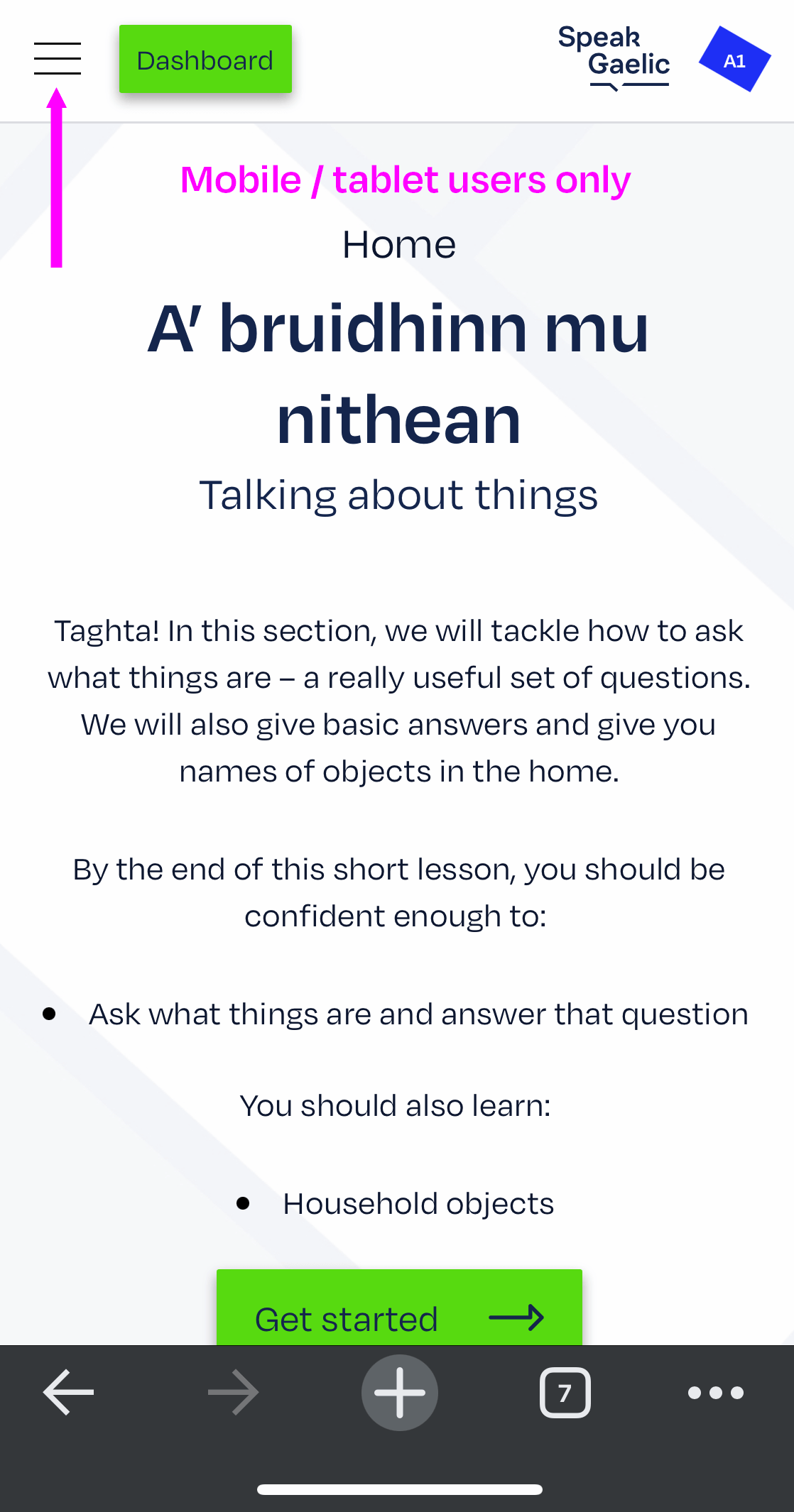Ort & oirbh
Gaelic, like many other languages, has a formal / plural version of ‘you’ (sibh) and an informal version of ‘you’ (thu). This also applies to pronouns linked to a preposition such as air (‘on’). Use oirbh to speak to:
- a group of people
- a stranger
- someone older or more senior than you
Dè an t-ainm a th’ oirbh?
What is your name?
However, if you are speaking to a child or a friend, use ort.
Dè an t-ainm a th’ ort?
What is your name?
This literally translates as “what the name which is on you?”.
Now we know how to ask the question but how do we answer it? You can either use the Is mise structure which you have learnt already.
’S e Iain an t-ainm a th’ orm
John is my name
This literally translates as “It is John which is the name which is upon me”.
Let’s practice this by using names we have already learnt.
’S e Anna an t-ainm a th’ orm
Anne is my name
’S e Calum an t-ainm a th’ orm
Malcolm is my name
’S e Seònaid an t-ainm a th’ orm
Janet is my name
’S e Ruairidh an t-ainm a th’ orm
Derek is my name




